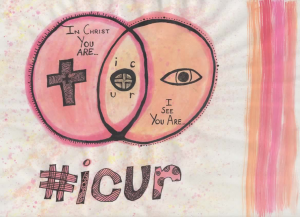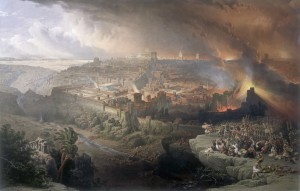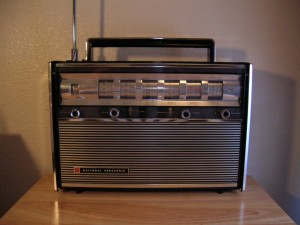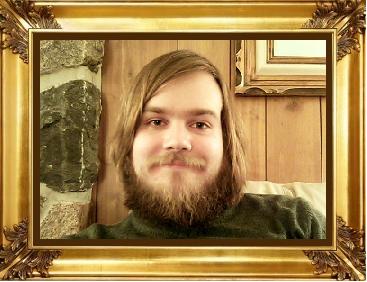 Who are you? We get this question on a daily basis, in word and glance and attitude and within. We answer and identify ourselves by our appearance, our occupation, our age and race and economic status and educational background, where we live, who we know, who we hate, what we enjoy and more. And of course, it all makes sense. Hardly anyone asks that question expecting (or wanting) your life story. They want to know this myriad of facts so they can label you, categorize you, sum you up and simplify you. Sometimes, it’s what we need in order to make connections, get work done, get through life. But it’s not who we are. It’s not who you are.
Who are you? We get this question on a daily basis, in word and glance and attitude and within. We answer and identify ourselves by our appearance, our occupation, our age and race and economic status and educational background, where we live, who we know, who we hate, what we enjoy and more. And of course, it all makes sense. Hardly anyone asks that question expecting (or wanting) your life story. They want to know this myriad of facts so they can label you, categorize you, sum you up and simplify you. Sometimes, it’s what we need in order to make connections, get work done, get through life. But it’s not who we are. It’s not who you are.
Who are you?
We all operate on self-image, “the way you think about yourself and your abilities or appearance.” It’s how you see yourself, resulting from both how others see you AND how you THINK others see you. This is tied to self-esteem, which is “a feeling of having respect for yourself and your abilities” or “a confidence and satisfaction in oneself.” Let’s think of modern art. 
If I showed you a painting, you might have this reaction- “Why is it so… pointy? That is… weird.” Or you might reply, “Wow, look at that classic painting by Pablo Picasso!” The only difference between the two responses would be a level of KNOWLEDGE & AWARENESS. Those who are unaware of Pablo Picasso’s work and style or just lack a deep knowledge of his specific paintings (I fall somewhere between these two camps…) cannot see the beauty of the work. But those who know Picasso and his work– they know they are looking at something beautiful.
The same is with you and I.
Too often, we build up a false body of knowledge about ourselves– we tune in to the voices of unkind peers and unrelenting bosses and guilt and shame and entertainment and faulty logic and wounded childhoods and selfish desires and unhealthy messages and unending memes and unhelpful people and accusers and tempters and the devil himself, and we believe all the lies about ourselves.
But you are more than who you are on your worst day– or your best day.
You are more than your successes or mistakes.
You are beautiful in the eye of the Creator who painted you, spoke you into being, formed you like clay and set you as a star to shine in the darkness. 
Yes, we are all broken. Sinful. Constantly choosing death over life. And yet, the same was true of Jerusalem. This city turned it’s back on God, and he spoke through the prophets words to convict them of their sin and motivate them to turn back to Him.
We have the Holy Spirit, who convicts us and leads us out of sin. His voice is a voice of guidance and love– sometimes tough love, but love all the same. His voice is not spiteful, shaming, accusing– that is the voice of the Accuser. There is time for words of judgment and conviction– but it’s easy for us to dwell in that shame and guilt and not move into the new life that God offers.
God spoke through his prophets words of conviction– but then, words of life, hope, love. This was Zephaniah’s message to Jerusalem. “Yahweh your God is among you, a warrior who saves. He will rejoice over you with gladness. He will bring you quietness with His love.He will delight in you with shouts of joy.” (Zephaniah 3:17, HCSB).
He will bring you quietness with His love.

But all the other voices drone ON and ON and ON– how do you shut them OFF?
You don’t. You can’t. You can only tune in to another station.
So what if we had a chorus of voices that spoke words of well-being and blessing, building positive self image and positive self esteem? NOT JUST for self-glorification, but as a dedication to Truth— the truth of who you really are and the Truth who made you. What if we had friends and family and teachers and mentors and little brothers and big sisters and songs and stories and sermons and art and play and encouraging emails and uplifting Facebook messages and out-of-the-blue compliments and surprising YouTube videos and graceful memes and gracious voices? But I digress…
Teresa, a saint with her love and her doubts, said it best: “We can do no great things, only small things with great love.”
Perhaps you and I can’t create a culture of good news, good works, and goodness found in Christ (though isn’t that the Kingdom?), but you and I can do small things with great love. And perhaps that is all we need.
Now what?
I’ll leave you with three words:
What is icur?
I’ll answer that in my next post. Stay tuned. Hope this is a good station.
